
The Alpine Paradise of Bad Gastein
Nestled in the heart of the Austrian Alps, Bad Gastein is a charming spa town known for its stunning natural beauty and therapeutic hot springs. Surrounded by majestic mountains and lush forests, this idyllic destination offers a perfect blend of relaxation and adventure for tourists seeking a rejuvenating getaway. The town's iconic waterfall cascades through the center, creating a picturesque backdrop for leisurely strolls and photo opportunities. Visitors can explore the historic architecture, including grand Belle Époque buildings that tell the story of Bad Gastein's rich history as a premier spa resort. The town's thermal waters are renowned for their healing properties, making the local spas a must-visit for those looking to unwind and rejuvenate. Outdoor enthusiasts will find a paradise in Bad Gastein with its vast array of activities. In the winter, the area transforms into a ski haven, offering some of Austria's best slopes for skiing and snowboarding. During the warmer months, hiking and mountain biking trails abound, providing breathtaking views of the alpine landscape. Additionally, the town hosts a variety of cultural events and festivals throughout the year, ensuring that there is always something exciting happening in this vibrant community.
Local tips in Bad Gastein
- Visit the Felsentherme Spa to experience the healing thermal waters.
- Take a guided tour of the historic Belle Époque buildings.
- Explore the Gastein Waterfall for a perfect photo opportunity.
- Check out the winter sports options, including skiing and snowboarding.
- Don't miss the summer hiking and mountain biking trails.
- Attend local festivals for a unique cultural experience.
The Alpine Paradise of Bad Gastein
Nestled in the heart of the Austrian Alps, Bad Gastein is a charming spa town known for its stunning natural beauty and therapeutic hot springs. Surrounded by majestic mountains and lush forests, this idyllic destination offers a perfect blend of relaxation and adventure for tourists seeking a rejuvenating getaway. The town's iconic waterfall cascades through the center, creating a picturesque backdrop for leisurely strolls and photo opportunities. Visitors can explore the historic architecture, including grand Belle Époque buildings that tell the story of Bad Gastein's rich history as a premier spa resort. The town's thermal waters are renowned for their healing properties, making the local spas a must-visit for those looking to unwind and rejuvenate. Outdoor enthusiasts will find a paradise in Bad Gastein with its vast array of activities. In the winter, the area transforms into a ski haven, offering some of Austria's best slopes for skiing and snowboarding. During the warmer months, hiking and mountain biking trails abound, providing breathtaking views of the alpine landscape. Additionally, the town hosts a variety of cultural events and festivals throughout the year, ensuring that there is always something exciting happening in this vibrant community.
When is the best time to go to Bad Gastein?
Iconic landmarks you can’t miss
Stubnerkogel Suspension Bridge
Discover the breathtaking views and thrilling heights at Stubnerkogel Suspension Bridge in Bad Gastein, a top destination for nature lovers and adventure seekers.
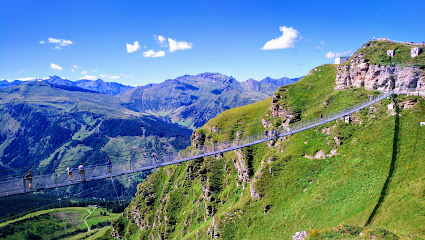
Felsentherme Bad Gastein
Experience the ultimate relaxation at Felsentherme Bad Gastein, a luxurious spa retreat nestled in the breathtaking Austrian Alps.
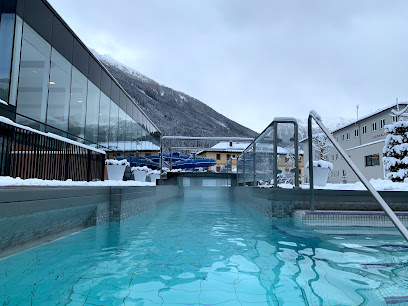
Gasteiner Wasserfall
Explore the Gasteiner Wasserfall, a stunning waterfall in Bad Gastein, Austria, where nature's beauty meets rich history.
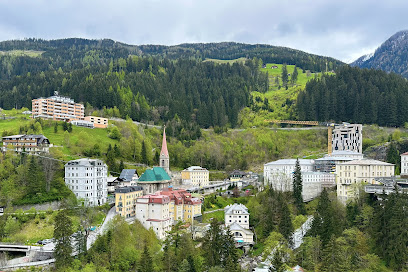
Flying Waters (Zip Line)
Experience the thrill of soaring through the stunning landscapes of Bad Gastein at Flying Waters Zip Line, an unforgettable adventure for all ages.
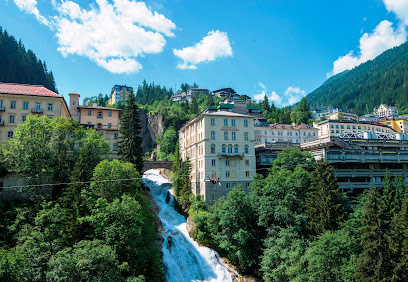
Glocknerblick
Experience breathtaking panoramic views of the Hohe Tauern mountains at Glocknerblick in Badgastein, a must-visit observation deck for every traveler.
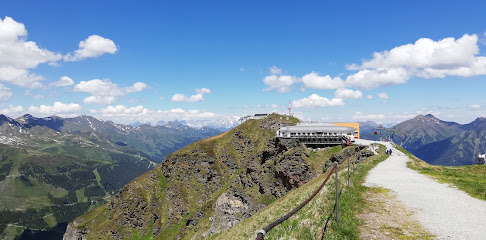
Hexenhäusl
Experience the warmth of Hexenhäusl, a cozy bar in Bad Gastein offering delightful drinks and a vibrant atmosphere amidst the stunning Alps.
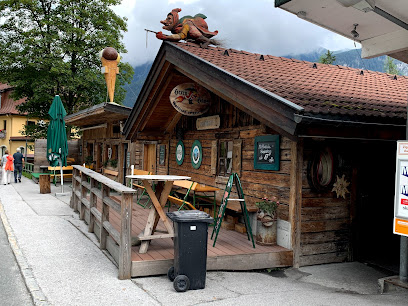
Mittelstation Stubnerkogelbahn
Discover the breathtaking views and thrilling experiences at Mittelstation Stubnerkogelbahn, your gateway to the stunning Austrian Alps.
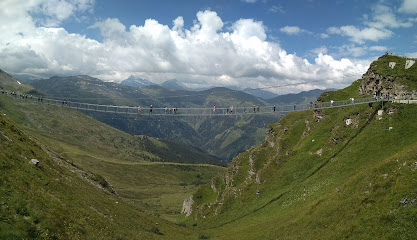
Wasserfallweg - Bad Gastein
Experience the breathtaking beauty of Wasserfallweg in Bad Gastein, a premier hiking destination in the Austrian Alps, perfect for nature lovers and adventure seekers alike.
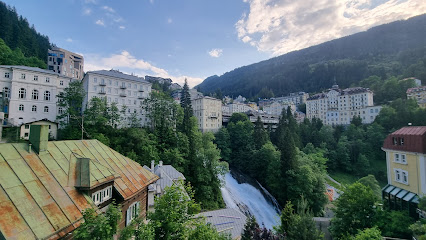
Zirbenweg
Discover the serene beauty of Zirbenweg in Badgastein, Austria, a hiking area that offers breathtaking views and a peaceful escape into nature.
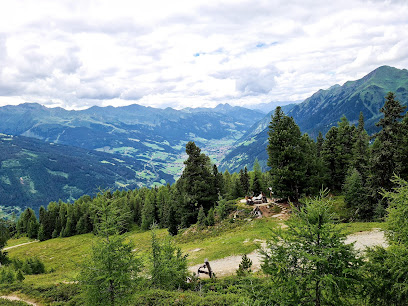
Haeggbloms BAR
Discover the vibrant nightlife at Haeggbloms BAR in Bad Gastein, where locals and tourists mingle over drinks and dance until dawn.
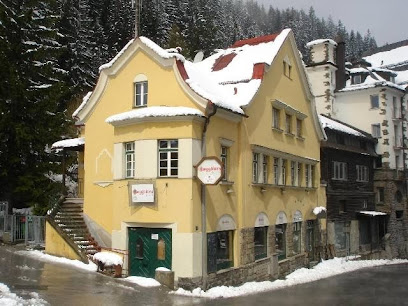
Kursaal
Explore the Kursaal in Bad Hofgastein: A captivating museum and cultural hub showcasing local history and art in a stunning architectural setting.
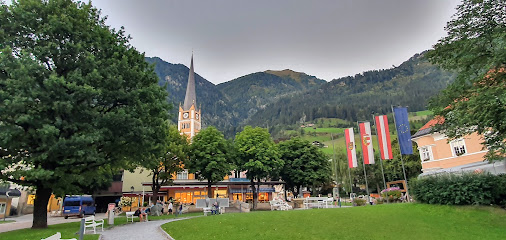
Kur und Tourismusverband Bad Gastein
Explore the stunning Bad Gastein region at the Tourist Information Center, your ultimate guide to alpine adventures and local culture.
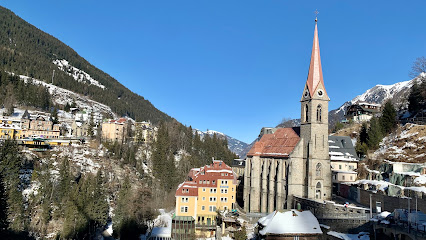
KWP Beautiful Things
Discover KWP Beautiful Things in Bad Gastein for a unique shopping experience blending local flavors, fashion, and stunning alpine views.
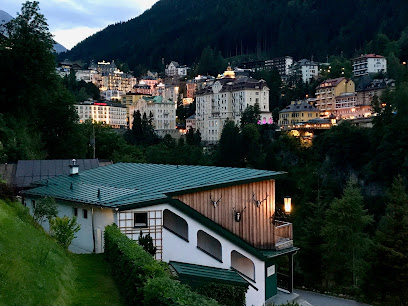
Gasteiner Höhenweg
Discover the breathtaking Gasteiner Höhenweg, a serene hiking area in Bad Gastein, Austria, perfect for nature lovers and adventure seekers.
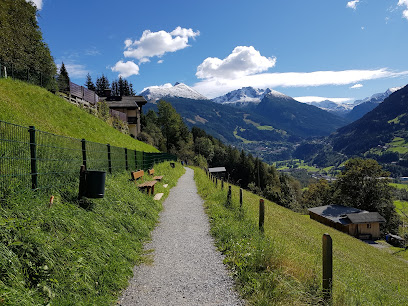
Montanmuseum Altböckstein Salzstadl
Explore the fascinating history of salt mining at Montanmuseum Altböckstein, a unique museum in the heart of Bad Gastein showcasing rich cultural heritage.
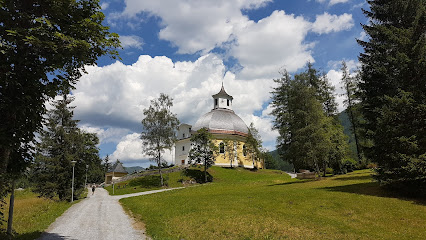
Unmissable attractions to see
Burg Hohenwerfen
Experience the enchanting Burg Hohenwerfen, a medieval castle in the heart of Austria, offering breathtaking views, rich history, and stunning falconry shows.
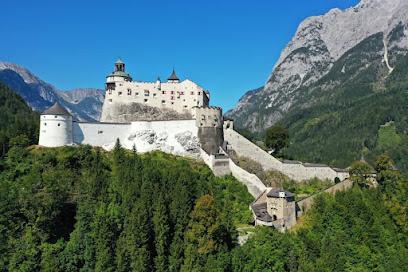
Eisriesenwelt
Explore Eisriesenwelt, the world's largest ice cave in Werfen, Austria, where nature's icy artistry meets breathtaking mountain views.
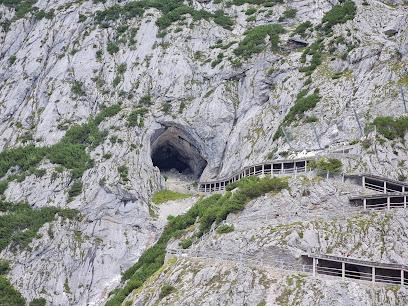
Pilgrimage Church of St. Bartholomew
Discover the serene beauty of St Bartholomew's Church, a historical pilgrimage site nestled by the stunning Königssee in Bavaria, Germany.
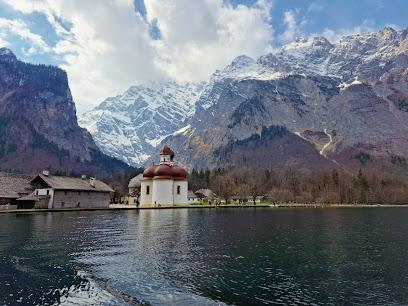
Kitzsteinhorn
Explore the majestic Kitzsteinhorn in Austria, a year-round destination for skiing, hiking, and breathtaking panoramic views of the Alps.
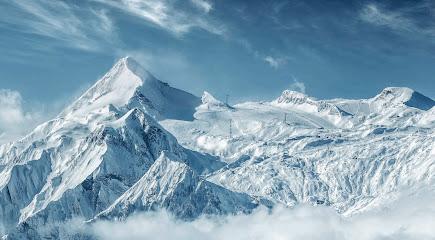
Stubnerkogel Suspension Bridge
Discover the breathtaking Stubnerkogel Suspension Bridge in Bad Gastein, Austria - an exhilarating journey through the stunning Austrian Alps.
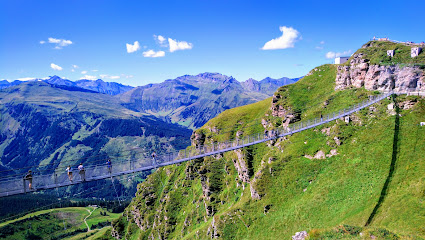
Burg Mauterndorf
Explore the medieval charm and rich history of Burg Mauterndorf, a stunning castle and museum nestled in Austria's picturesque Lungau valley.
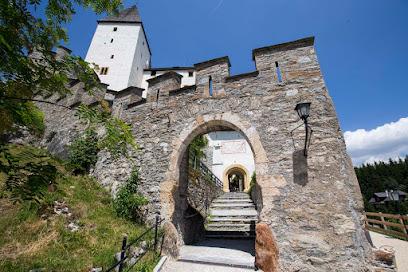
Schlossalmbahn Gastein
Discover the stunning beauty and thrilling adventures of Schlossalmbahn Gastein, a premier ski resort and hiking area in the heart of the Austrian Alps.
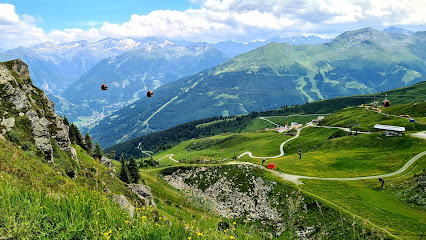
Bad Gastein - Sportgastein
Discover the breathtaking beauty and thrilling adventures of Bad Gastein - Sportgastein, a premier ski resort and hiking paradise in the Austrian Alps.
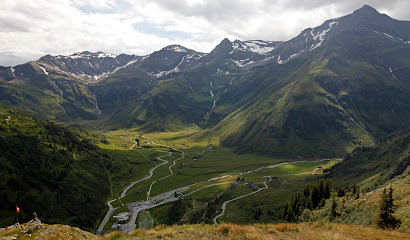
Kaprun Hochgebirgsstauseen
Explore the breathtaking Kaprun Hochgebirgsstauseen, where stunning scenery meets sustainable energy in the heart of the Austrian Alps.
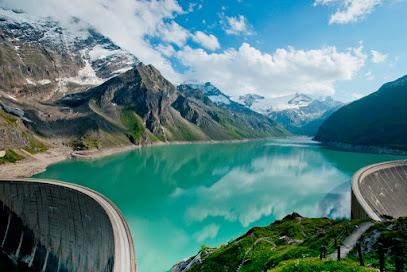
Gasteiner Bergbahnen AG
Explore breathtaking slopes and stunning scenery at Gasteiner Bergbahnen, a premier ski resort and mountain cable car attraction in Bad Hofgastein.
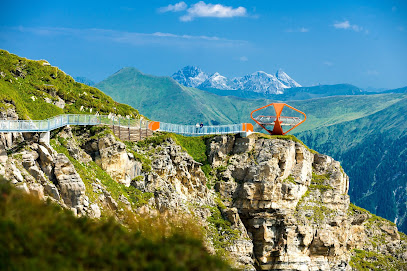
Burg Kaprun
Experience the charm of Burg Kaprun, a historic castle in Austria offering stunning views, rich history, and cultural experiences in the heart of the Alps.
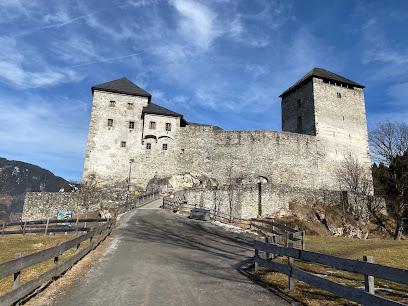
Lake Zell
Experience the breathtaking beauty of Lake Zell in the Austrian Alps with stunning views, outdoor adventures, and serene lakeside relaxation.
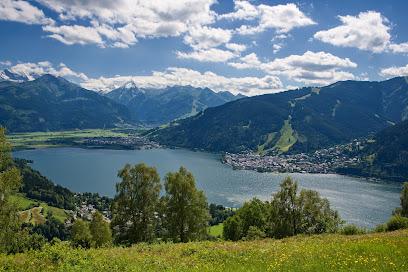
Flying Waters (Zip Line)
Experience the thrill of zip lining over breathtaking landscapes and waterfalls at Flying Waters in Bad Gastein, Austria.
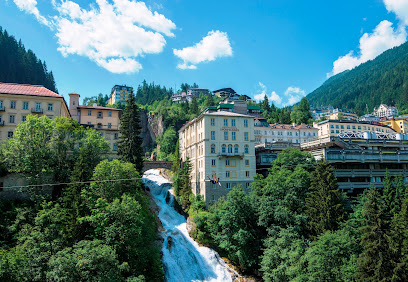
The Sound of Music Trail
Experience the stunning landscapes of The Sound of Music Trail in Werfen, where nature meets cinematic history in the heart of Austria.
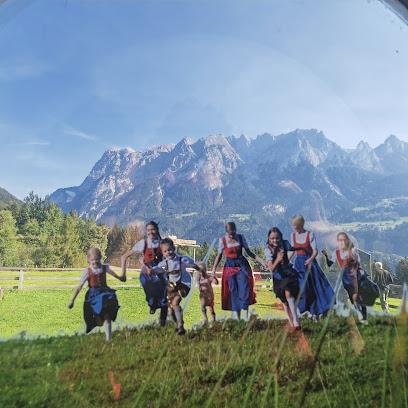
Glocknerblick
Discover the breathtaking Glocknerblick in Badgastein, offering stunning views of Austria's highest peak, Grossglockner, and the surrounding alpine beauty.
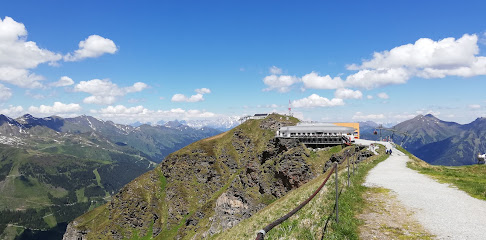
Essential places to dine
Gasthaus Jägerhäusl
Experience authentic Austrian cuisine at Gasthaus Jägerhäusl in Bad Gastein - where tradition meets taste in a charming alpine setting.
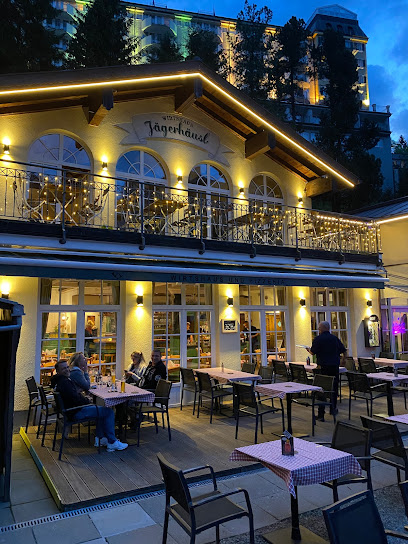
Valeriehaus Bad Gastein
Experience authentic Austrian cuisine at Valeriehaus Bad Gastein – where culinary tradition meets modern flair in a cozy alpine setting.
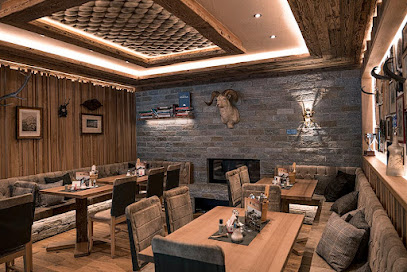
Restaurant-Cafe Himmelwandhütte
Experience authentic Austrian cuisine at Restaurant-Cafe Himmelwandhütte, your gateway to hiking adventures in beautiful Bad Gastein.
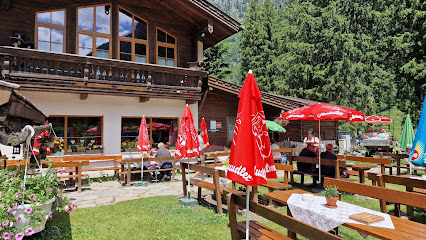
Kraftwerk Bad Gastein
Discover culinary excellence at Kraftwerk Bad Gastein, where local flavors meet stunning alpine views in an unforgettable dining experience.
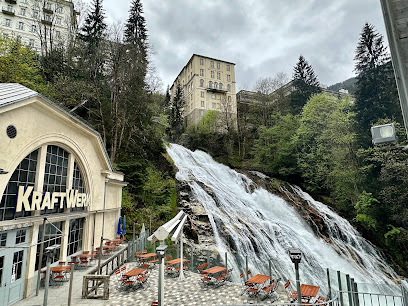
Bergstadl Bad Gastein
Discover authentic Austrian cuisine at Bergstadl Bad Gastein, where stunning alpine views meet delightful flavors in a charming mountain cabin setting.
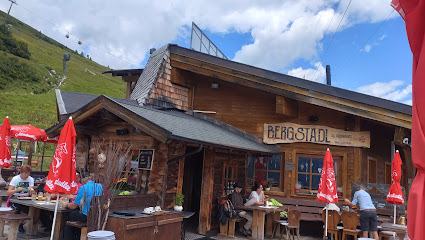
Bäckerwirtsgut
Experience authentic Austrian cuisine at Bäckerwirtsgut in Bad Gastein – where tradition meets taste in a cozy alpine setting.
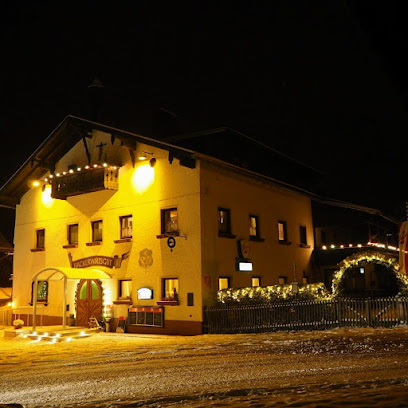
Orania-Stüberl
Experience authentic Austrian cuisine at Orania-Stüberl, where local flavors meet stunning alpine views in Bad Gastein.
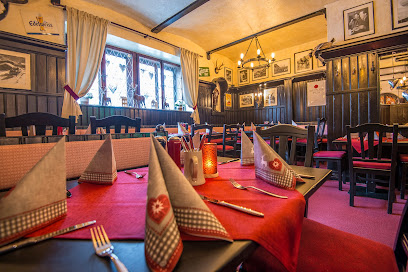
Schafflinger Alm
Experience authentic Austrian cuisine at Schafflinger Alm amidst breathtaking alpine scenery in Bad Gastein.
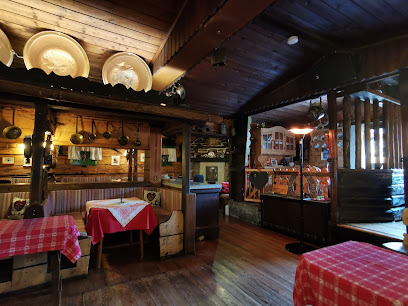
Pizzeria ANGELO
Savor authentic Italian flavors at Pizzeria ANGELO in Bad Gastein - where every pizza is crafted with love and tradition.
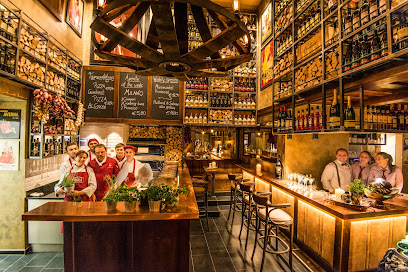
Skirestaurant Junger Stube
Discover Skirestaurant Junger Stube: A culinary gem nestled in the heart of Austria's breathtaking Stubnerkogel mountains, perfect for ski enthusiasts and food lovers alike.
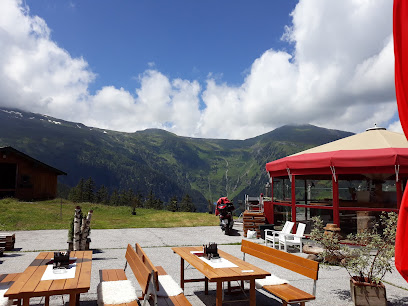
Gipfelrestaurant Stubner
Experience alpine dining at its finest at Gipfelrestaurant Stubner—where breathtaking views meet delightful local cuisine in Bad Gastein.
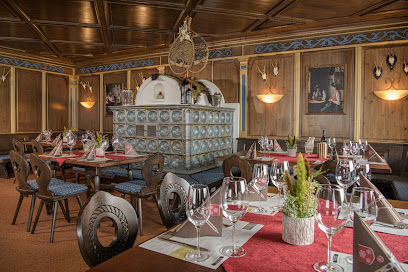
Alpenhaus Prossau
Discover authentic Austrian cuisine at Alpenhaus Prossau in Bad Gastein's stunning Kötschachtal valley - where flavor meets breathtaking views.
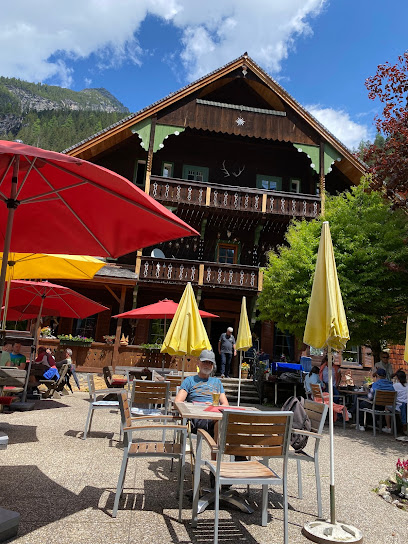
Panorama-Restaurant Silberkrug
Discover breathtaking mountain views and exquisite cuisine at Panorama-Restaurant Silberkrug in Bad Gastein.
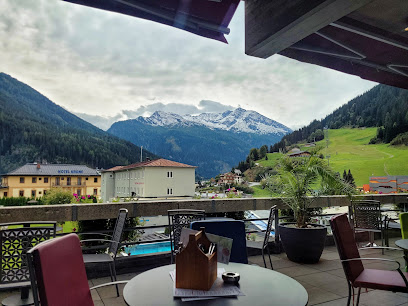
Gasteiner Wirtshaus
Experience authentic Austrian cuisine at Gasteiner Wirtshaus in Bad Gastein—where tradition meets taste amid breathtaking mountain views.
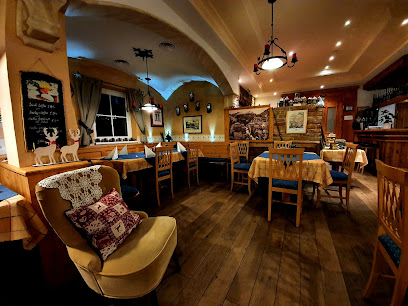
Almgasthof Windischgrätz
Experience authentic Austrian cuisine surrounded by stunning alpine landscapes at Almgasthof Windischgrätz in Bad Gastein.
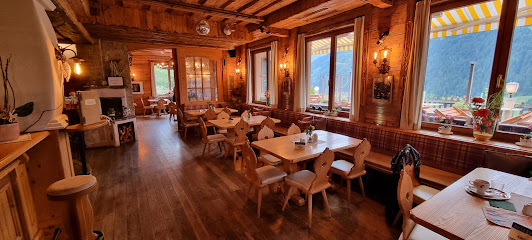
Markets, malls and hidden boutiques
EUROSPAR
Discover an extensive range of fresh groceries and local delights at EUROSPAR in Bad Gastein, the perfect supermarket for tourists in the heart of the Alps.
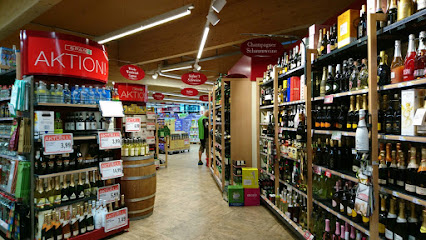
BILLA
Explore BILLA in Bad Gastein for a delightful shopping experience featuring local and international products, perfect for your travel needs.
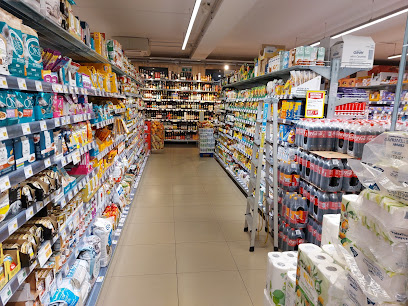
Hervis Bad Gastein
Explore Hervis Bad Gastein: Your ultimate destination for sporting goods and outdoor adventure in the heart of the Austrian Alps.
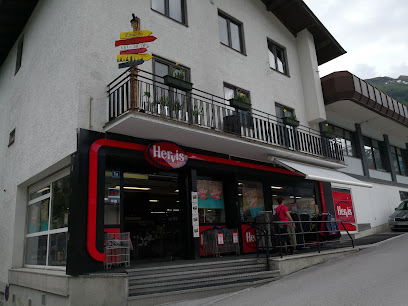
KWP Beautiful Things
Explore KWP Beautiful Things in Bad Gastein for unique gifts, local delicacies, and a charming cafe experience amid stunning mountain views.
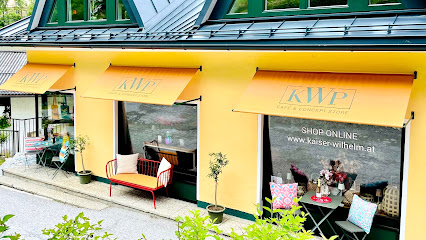
INTERSPORT Fleiss
Explore the ultimate sporting goods store in Bad Gastein, offering ski rentals, bicycles, and expert advice for your alpine adventures.
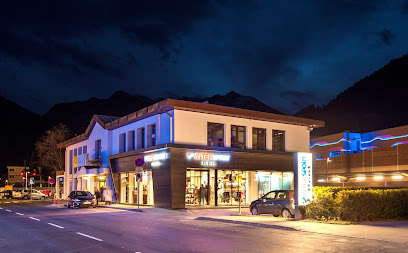
Steira-Shop
Explore Steira-Shop in Bad Hofgastein for unique gifts, local groceries, and souvenirs that capture the essence of Austria.
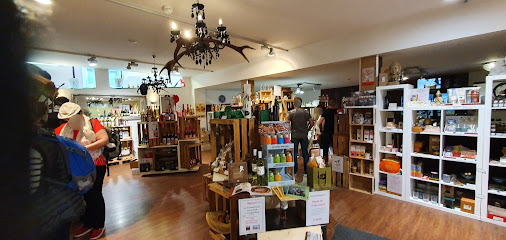
Gastein Moonshine
Explore the rich tradition of spirit-making at Gastein Moonshine in Bad Gastein, where local craftsmanship meets authentic flavors.
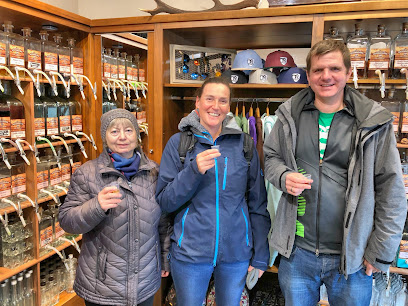
Konditorei Thurner
Discover the sweet taste of Austria at Konditorei Thurner, where exquisite pastries and delightful confections await every visitor.
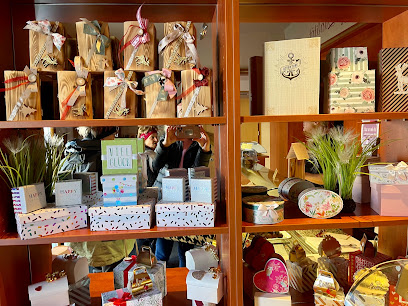
Shreddin'
Discover the best snowboarding gear and expert advice at Shreddin', the ultimate snowboard shop in Bad Gastein, Austria.
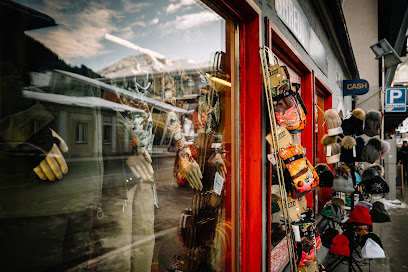
Naturladen Gastein
Explore Naturladen Gastein, your go-to organic shop in Bad Gastein for fresh produce, eco-friendly products, and exceptional local service.
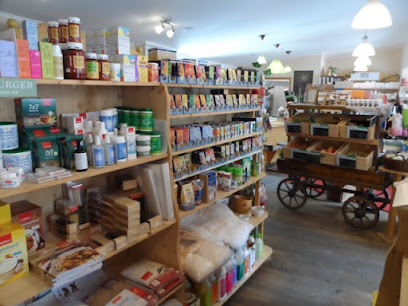
Gschäftl
Discover unique souvenirs and local treasures at Gschäftl, the charming gift shop in Bad Gastein that embodies the spirit of the Alps.
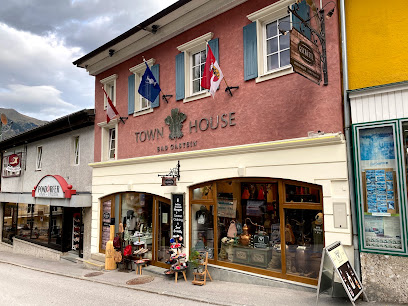
Gastein Sport - SPORT 2000
Discover winter adventures at Gastein Sport, the premier ski rental and school in Bad Gastein, Austria, offering endless fun in the snow.
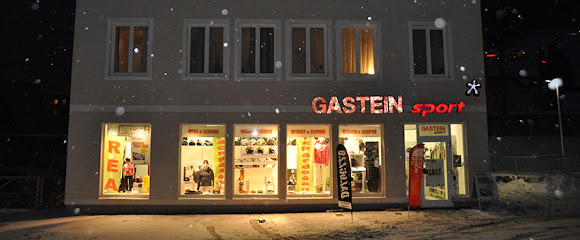
Dorfladen Bad Bruck
Discover the cozy charm of Dorfladen Bad Bruck, a delightful coffee shop in Bad Gastein, ideal for coffee lovers and weary travelers alike.
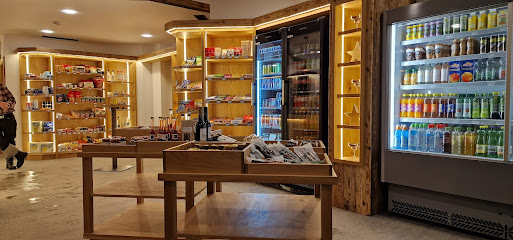
Fashion Egger - Die Fashion-Boutique Gastein
Discover the latest fashion trends at Fashion Egger, a charming boutique in Bad Hofgastein, perfect for stylish shoppers looking for unique pieces.
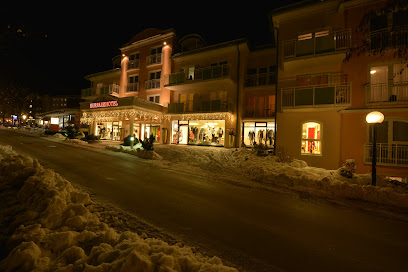
Trachten OUTLET LINDENTHALER
Explore the charm of Austrian traditional clothing at Trachten OUTLET LINDENTHALER in Bad Gastein, where culture meets style.
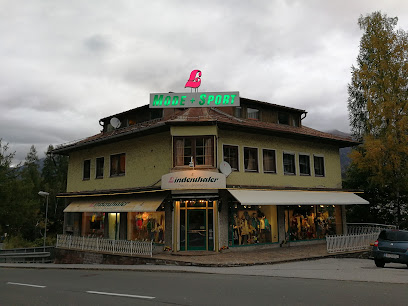
Essential bars & hidden hideouts
Gastein Alm
Experience authentic Austrian cuisine and delightful pizzas in a cozy atmosphere at Gastein Alm in Bad Hofgastein.
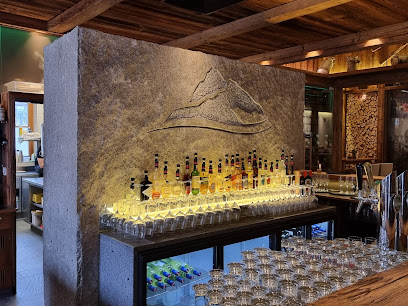
Gasthaus Jägerhäusl
Experience the authentic flavors of Austria at Gasthaus Jägerhäusl, a cozy restaurant in Bad Gastein offering delicious local and vegetarian dishes.
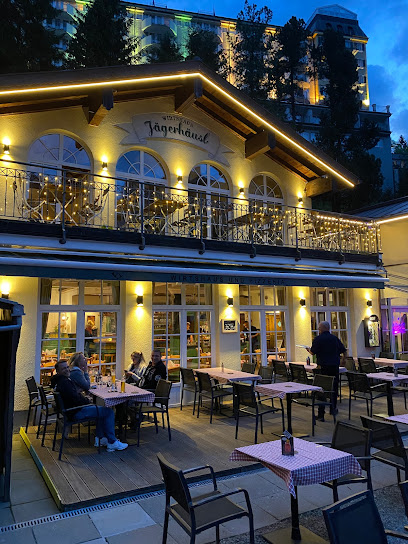
Restaurant-Cafe Himmelwandhütte
Experience exquisite local cuisine and stunning alpine views at Himmelwandhütte, the perfect retreat for hikers and food lovers in Bad Gastein.
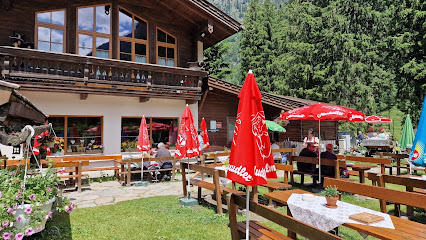
Bergstadl Bad Gastein
Experience the breathtaking beauty and exquisite flavors of Bergstadl Bad Gastein, a charming mountain cabin restaurant in the Austrian Alps.
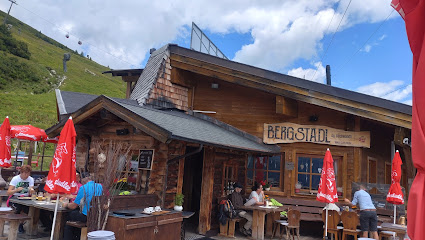
Panorama-Restaurant Silberkrug
Experience breathtaking views and delectable local cuisine at Panorama-Restaurant Silberkrug in Bad Gastein, a culinary gem in the Alps.
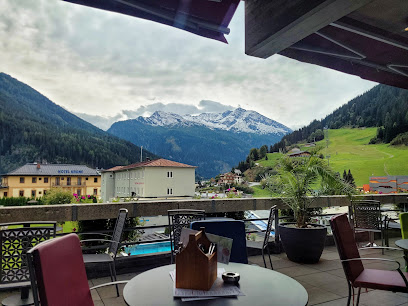
Gasteiner Wirtshaus
Discover the flavors of Austria at Gasteiner Wirtshaus, a charming restaurant in Bad Gastein offering traditional cuisine and stunning mountain views.
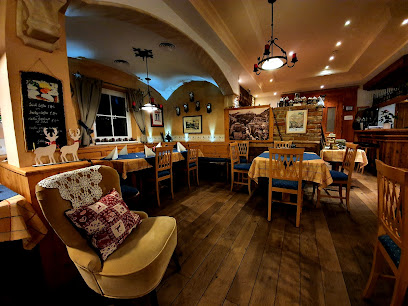
Silver Bullet Bar
Discover the lively vibes of Silver Bullet Bar in Bad Gastein - your ultimate après-ski destination for drinks and fun.
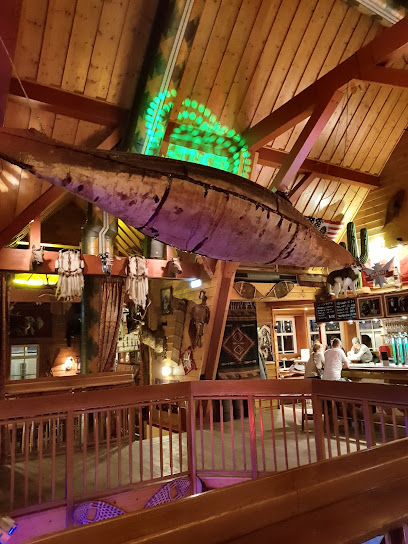
Hexenhäusl
Experience the enchanting atmosphere of Hexenhäusl, a charming bar in Bad Gastein, offering a delightful selection of drinks and a cozy ambiance.
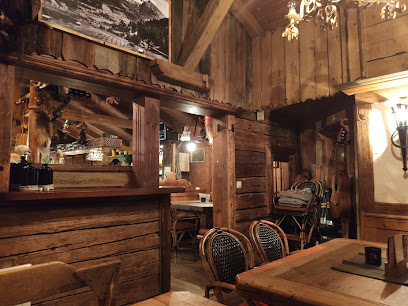
The Drop Inn
Experience the best of Austrian cuisine at The Drop Inn, a cozy gastropub in Bad Gastein with stunning views and a warm atmosphere.
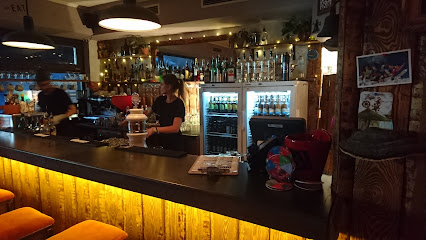
Haeggbloms BAR
Experience the lively nightlife at Haeggbloms BAR in Bad Gastein, where great drinks and vibrant entertainment meet stunning alpine views.
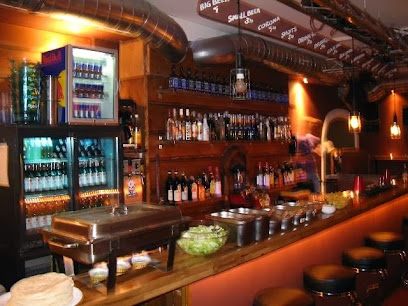
SISI Cafe-Bistro-Bar
Discover the perfect blend of coziness and flavor at SISI Cafe-Bistro-Bar in Bad Gastein, your ideal retreat for drinks and delightful dishes.
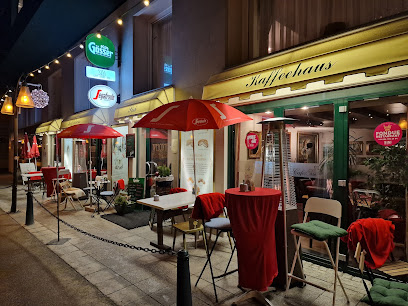
Waldhaus Rudolfshöhe
Experience the charm of Waldhaus Rudolfshöhe, a delightful bar and Austrian restaurant in the stunning landscape of Bad Gastein.
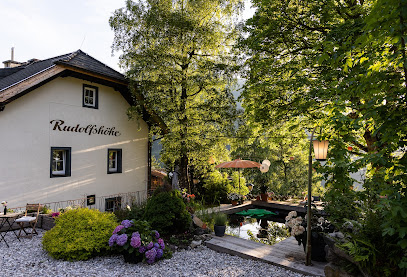
Lederhosenbar
Lederhosenbar: A lively live music bar in Bad Gastein, perfect for a night of fun, great drinks, and unforgettable performances.
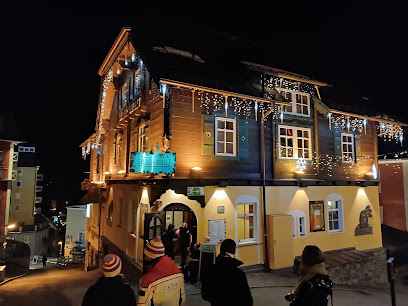
Eisschützenstüberl
Discover the charm of Eisschützenstüberl, a cozy bar in Bad Gastein offering local drinks and a warm atmosphere to unwind and socialize.
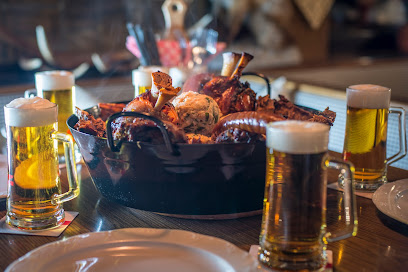
Local Phrases
-
- HelloServus
[Ser-voos] - GoodbyeAuf Wiedersehen
[Owf Vee-der-zay-en] - YesJa
[Ya] - NoNein
[Nine] - Please/You're welcomeBitte
[Bit-teh] - Thank youDanke
[Dahn-keh] - Excuse me/SorryEntschuldigung
[Ent-shool-dee-gung] - How are you?Wie geht es Ihnen?
[Vee gayt es een-en?] - Fine. And you?Gut. Und Ihnen?
[Goot. Oond Een-en?] - Do you speak English?Sprechen Sie Englisch?
[Spreck-en Zee Eng-leesh?] - I don't understandIch verstehe nicht
[Ick fair-shtay-eh nisht]
- HelloServus
-
- I'd like to see the menu, pleaseIch hätte gerne die Speisekarte, bitte
[Ick hett-eh gehr-neh dee Shpy-zeh-kart-eh, bit-teh] - I don't eat meatIch esse kein Fleisch
[Ick ess-eh kine Fly-sh] - Cheers!Prost!
[Prohst] - I would like to pay, pleaseIch möchte bitte zahlen
[Ick mehr-sh-tuh bit-teh tsah-len]
- I'd like to see the menu, pleaseIch hätte gerne die Speisekarte, bitte
-
- Help!Hilfe!
[Hil-fuh] - Go away!Gehen Sie weg!
[Gay-en Zee veg] - Call the Police!Rufen Sie die Polizei!
[Roo-fen Zee dee Po-lee-tsey] - Call a doctor!Rufen Sie einen Arzt!
[Roo-fen Zee i-nen artsht] - I'm lostIch habe mich verirrt
[Ick hah-beh meekh fair-eert] - I'm illIch bin krank
[Ick been krunk]
- Help!Hilfe!
-
- I'd like to buy...Ich möchte ... kaufen
[Ick mehr-sh-tuh ... cow-fen] - I'm just lookingIch schaue nur
[Ick show-eh noor] - How much is it?Wie viel kostet das?
[Vee feel koss-tet dass] - That's too expensiveDas ist zu teuer
[Dass ist tsoo toy-er] - Can you lower the price?Können Sie den Preis senken?
[Kern-en Zee dain preis senk-en]
- I'd like to buy...Ich möchte ... kaufen
-
- What time is it?Wie spät ist es?
[Vee shpayt ist es] - It's one o'clockEs ist ein Uhr
[Es ist iyn oor] - Half past (10)Halb (zehn)
[Halb (tseyn)] - MorningMorgen
[Mor-gen] - AfternoonNachmittag
[Nah-mit-tahg] - EveningAbend
[Ah-bend] - YesterdayGestern
[Ges-tern] - TodayHeute
[Hoy-teh] - TomorrowMorgen
[Mor-gen] - 1Eins
[Iyns] - 2Zwei
[Tsvy] - 3Drei
[Dry] - 4Vier
[Feer] - 5Fünf
[Foonf] - 6Sechs
[Zeks] - 7Sieben
[Zee-ben] - 8Acht
[Acht] - 9Neun
[Noyn] - 10Zehn
[Tseyn]
- What time is it?Wie spät ist es?
-
- Where's a/the...?Wo ist ein/der...?
[Vo ist iyn/dehr] - What's the address?Was ist die Adresse?
[Vas ist dee Ah-dress-eh] - Can you show me (on the map)?Können Sie mir das zeigen (auf der Karte)?
[Kern-en Zee meer dass tsay-gen (ouf dehr Kart-eh)] - When's the next (bus)?Wann kommt der nächste (Bus)?
[Vann kommt dehr naykst-eh (Boos)] - A ticket (to ....)Eine Fahrkarte (nach ....)
[I-nuh Far-kart-eh (nahkh)]
- Where's a/the...?Wo ist ein/der...?
History of Bad Gastein
-
Bad Gastein's history dates back to Roman times. The area was known for its thermal springs, which the Romans utilized for their reputed healing properties. Archaeological finds indicate that the Romans built bathhouses and other structures to take advantage of these natural resources.
-
During the medieval period, Bad Gastein began to develop as a significant settlement. The town's strategic location in the Gastein Valley made it an important hub for trade and transportation. By the 13th century, the area was under the rule of the Archbishopric of Salzburg, which further contributed to its growth and prosperity.
-
The 19th century marked the Golden Age of Spa Tourism in Bad Gastein. The town became a fashionable retreat for European aristocracy and elite, including royalty and notable figures such as Emperor Franz Joseph I of Austria and Empress Elisabeth (Sisi). The construction of grand hotels and villas during this period transformed Bad Gastein into a luxurious spa destination.
-
Bad Gastein, like much of Austria, was affected by World War II. The town experienced occupation and was later part of the Allied-occupied zones after the war. Despite the challenging times, Bad Gastein gradually rebuilt and continued to attract visitors seeking its renowned thermal waters.
-
In recent decades, Bad Gastein has undergone a revitalization. Efforts have been made to preserve its historical architecture while modernizing amenities to cater to contemporary tourists. The town now offers a blend of historical charm and modern luxury, maintaining its reputation as a premier spa and wellness destination.
-
Bad Gastein is not just about its thermal springs; it also boasts a rich cultural scene. The town hosts various festivals and events throughout the year, such as the annual 'Sommer.Frische.Kunst' festival, which celebrates contemporary art and culture. Traditional Austrian music, dance, and culinary experiences are also integral to the town's cultural identity.
Bad Gastein Essentials
-
Bad Gastein is nestled in the Austrian Alps, making it a picturesque yet accessible destination. The nearest international airport is Salzburg Airport (approximately 96 kilometers away). From Salzburg, you can take a direct train to Bad Gastein, which takes about 1.5 to 2 hours. Alternatively, you can also fly into Munich Airport, which is around 250 kilometers away, and then take a train or drive to Bad Gastein. If you prefer driving, the town is well connected by roads, and rental cars are available at major airports.
-
Bad Gastein is a compact town, and many attractions are within walking distance. The town is also well-served by local buses, which can take you to nearby villages and ski resorts. Taxis are available but can be quite expensive. For those wanting more flexibility, renting a car is a good option, especially if you plan to explore the broader Gastein Valley. The train station in Bad Gastein offers frequent services to Salzburg and other major cities.
-
The official currency in Austria is the Euro (EUR). Credit cards are widely accepted in hotels, restaurants, and shops. ATMs are readily available throughout Bad Gastein, so you can easily withdraw cash. However, it is advisable to carry some cash, especially when visiting smaller establishments or rural areas where card payments might not be accepted.
-
Bad Gastein is generally a very safe destination for tourists. There are no specific high-crime areas targeting tourists, but it is always prudent to exercise standard precautions. Avoid walking alone at night in isolated areas and keep an eye on your belongings, especially in crowded places like markets and train stations. The town has a strong police presence, ensuring a safe environment for visitors.
-
In case of an emergency, dial 112 for immediate assistance. Bad Gastein has a medical center and a pharmacy for minor health issues. For more serious medical emergencies, you may need to travel to a larger hospital in Salzburg. It is highly recommended to have travel insurance that covers medical emergencies.
-
Fashion: Do dress in layers, as the weather can change quickly in the mountains. Avoid overly casual clothing when dining in finer restaurants. Religion: Do respect local customs and traditions. While Austria is predominantly Catholic, there is a general respect for all religions. Public Transport: Do validate your ticket before boarding trains and buses. Don’t be loud or disruptive. Greetings: Do use a firm handshake when greeting someone. Austrians appreciate politeness. Eating & Drinking: Do try local specialties like Wiener Schnitzel and Apfelstrudel. Don’t rush your meals; dining is a leisurely affair here.
-
To experience Bad Gastein like a local, take a stroll through the historic town center and enjoy the stunning Belle Époque architecture. Visit the thermal baths, which are a favorite among locals for relaxation. Engage with locals in conversation; Austrians are generally friendly and love to share stories about their culture. Don’t miss out on local events and festivals, which offer a glimpse into traditional Austrian life. Lastly, hiking is a popular local activity, and there are numerous scenic trails to explore.
Trending Landmark in Bad Gastein
-
Stubnerkogel Suspension Bridge
-
Felsentherme Bad Gastein
-
Gasteiner Wasserfall
-
Flying Waters (Zip Line)
-
Glocknerblick
-
Hexenhäusl
-
Mittelstation Stubnerkogelbahn
-
Wasserfallweg - Bad Gastein
-
Zirbenweg
-
Haeggbloms BAR
-
Kursaal
-
Kur und Tourismusverband Bad Gastein
-
KWP Beautiful Things
-
Gasteiner Höhenweg
-
Montanmuseum Altböckstein Salzstadl
Nearby Cities to Bad Gastein
-
Things To Do in Zell am See
-
Things To Do in Hallstatt
-
Things To Do in Kitzbühel
-
Things To Do in Salzburg
-
Things To Do in Kranjska Gora
-
Things To Do in Klagenfurt
-
Things To Do in Bled
-
Things To Do in Bohinj
-
Things To Do in Innsbruck
-
Things To Do in Nova Gorica
-
Things To Do in Škofja Loka
-
Things To Do in Kamnik
-
Things To Do in Ljubljana
-
Things To Do in Linz
-
Things To Do in Munich









